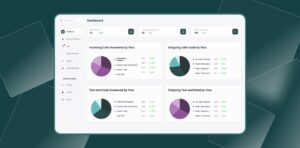Introduction
In the realm of dental care, the integration of data analytics is rapidly becoming a cornerstone for revolutionary treatment strategies. My journey in the dental industry, from operating dental offices to founding Soothing Dental and later 2Dental, has given me a unique perspective on the evolution of patient care through technology. In this blog, we’ll explore how data analytics, particularly via advanced algorithms and Large Language Models (LLMs), is transforming dental treatment planning.
The Traditional Approach
Traditionally, dental treatment planning has been a highly personalized but cumbersome process. Dental professionals like myself have relied on manual analyses of patient histories, preferences, and clinical needs. This approach, while effective, often leads to inefficiencies and a lack of consistency in treatment planning.
Rise of Data Analytics in Dentistry
The advent of data analytics has begun to change this narrative. By harnessing the power of data, dental professionals can now gain deeper insights into patient needs and tailor treatments more effectively. This evolution is not just about efficiency; it’s about elevating the standard of patient care.
Integrating Data Analytics in Treatment Planning
Imagine a scenario where all aspects of a patient’s profile – financial considerations, schedule, personal preferences, and clinical issues – are analyzed comprehensively through data analytics. This approach allows for a level of precision in treatment planning previously unattainable, ensuring that every decision made is informed and patient-centric.
The Role of LLMs in Dental Data Analysis
Large Language Models, a breakthrough in AI, are now beginning to find their place in dental data analysis. These models can process vast amounts of data, providing insights that support complex decision-making processes in treatment planning. This capability marks a significant shift from traditional methods, opening up possibilities for more personalized and effective dental care.
Benefits of Data-Driven Dentistry
The integration of data analytics into dental practices brings numerous benefits:
- Enhanced patient outcomes through personalized treatment plans.
- Increased efficiency and reduced operational costs.
- Improved decision-making processes, leading to higher standards of care.
Challenges and Ethical Considerations
However, with these advancements come challenges. Issues such as data privacy and the ethical use of AI in healthcare must be addressed. It is crucial to ensure that the implementation of these technologies is done responsibly and with the patients’ best interests in mind.
Looking Ahead
The future of dentistry is one where data analytics plays a pivotal role in every aspect of patient care. As we continue to explore and develop these technologies, we move closer to an era of unprecedented precision and personalization in dental health services.
Conclusion
The integration of data analytics in dental treatment planning is more than just a technological advancement; it’s a step towards a future where every aspect of dental care is optimized for the best patient outcomes. My experiences in the dental industry, particularly with Soothing Dental and 2Dental, have shown me the immense potential of these technologies in transforming how we approach dental health. As we continue to embrace these changes, we pave the way for a new standard in dental care excellence.



